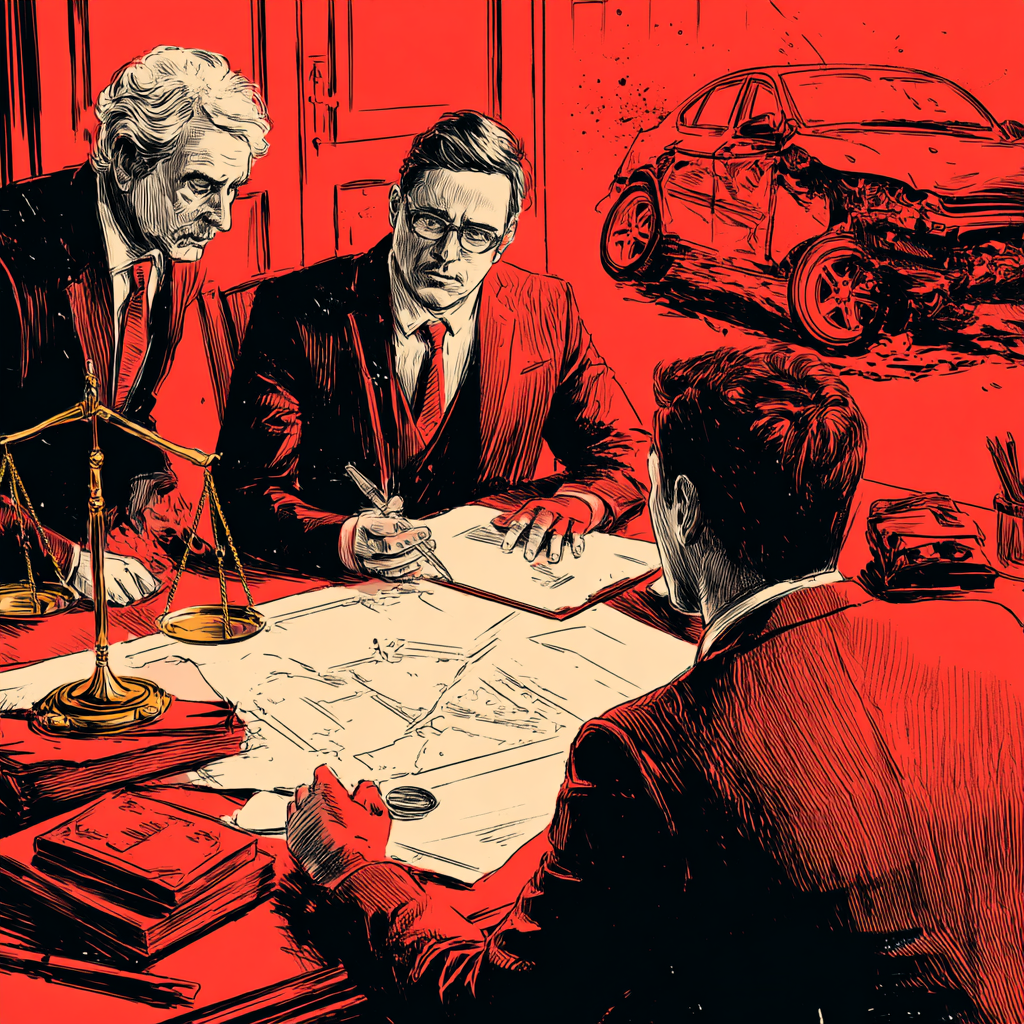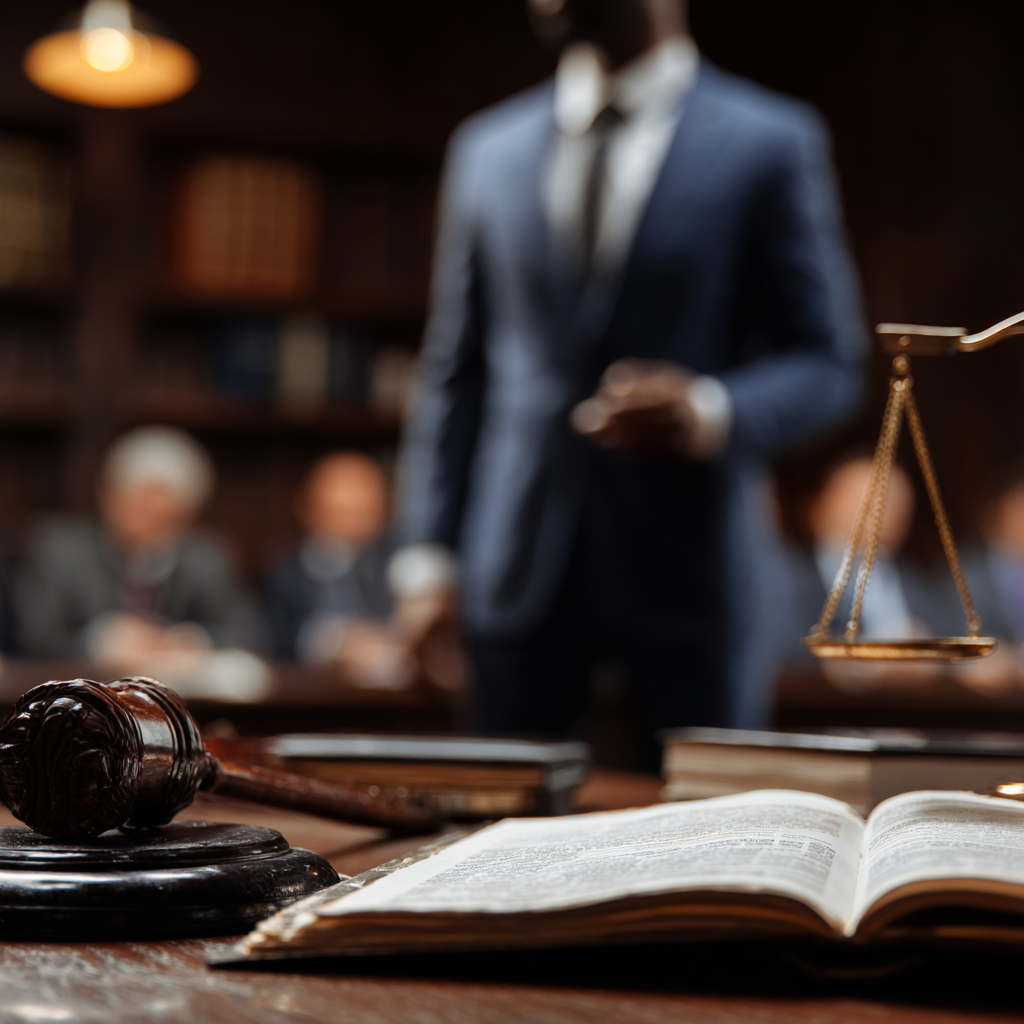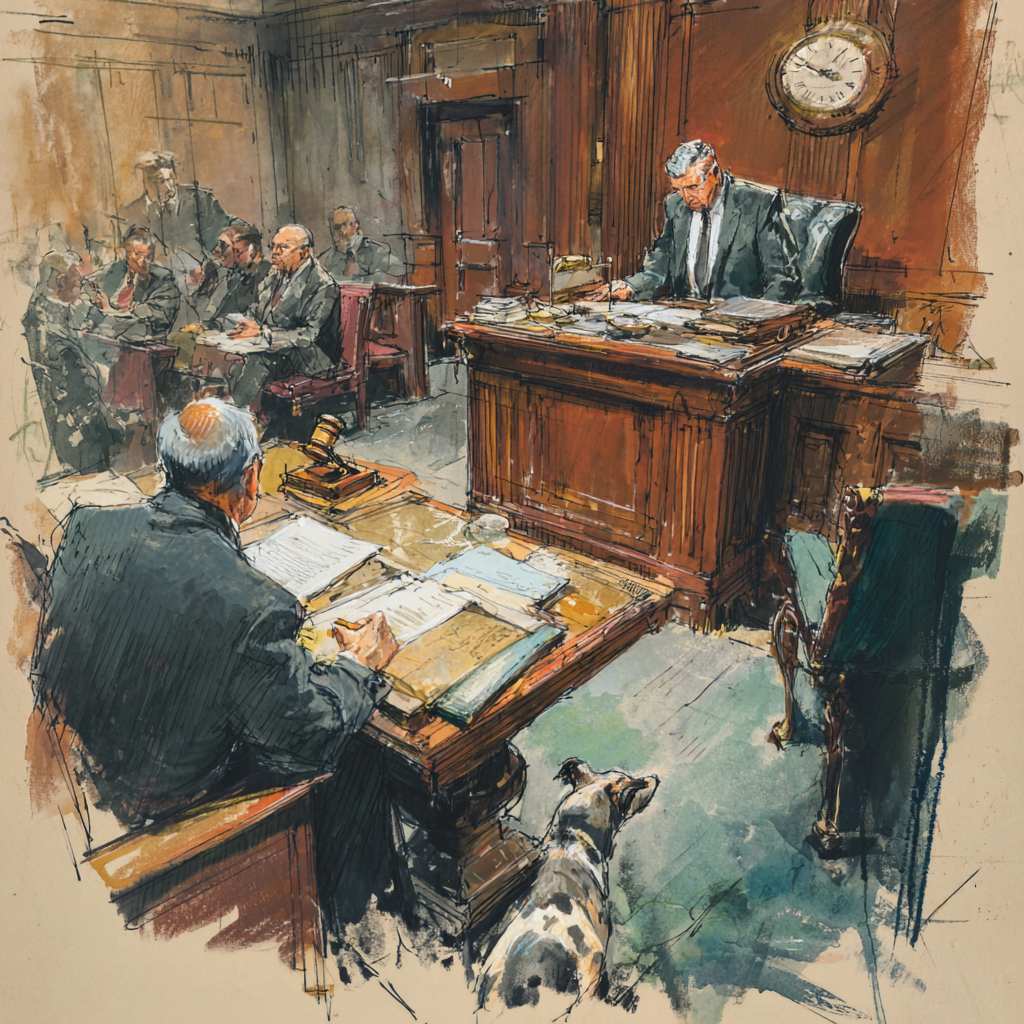What would happen if this became law? Read the part about making sure the EIP knows that he has been caught committing fraud and that he should be exercising his 5th Amendment rights at the EUO. Dear Claimant: Here is evidence that you staged your accident. But do not worry, you can assert your 5th Amendment rights at our EUO and if you are evasive for more than 3 hours, then there is nothing we can do. Claimant's like you will help keep our loss ratio over 150%. Thank you for doing business with us. With warm regards, Soon to be defrauded insurance company. STATE OF NEW YORK ________________________________________________________________________ 7357 IN SENATE May 2, 2012 ___________ Introduced by Sen. NOZZOLIO -- read twice and ordered printed, and when printed to be committed to the Committee on Insurance AN ACT to amend the insurance law, in relation to examination under oath of covered persons pursuant to the comprehensive motor vehicle insur- ance reparations act The People of the State of New York, represented in Senate and Assem- bly, do enact as follows: 1 Section 1. Section 5103 of the insurance law is amended by adding a 2 new subsection (i) to read as follows: 3 (i) With regard to any claim for first party benefits pursuant to this 4 article, the examination under oath of a person claiming to be a covered 5 person shall be scheduled by the insurer directly or by an attorney 6 appointed by the insurer for purposes of conducting such examination 7 under oath for whose conduct and activity the insurer shall be directly 8 responsible. The examination under oath of a claimant shall not be 9 demanded unless and until an application for first party benefits has 10 been received by the insurer. In any examination under oath, the claim- 11 ant shall have the right to be represented by counsel. The examination 12 shall be conducted upon oath or affirmation. The examination under oath 13 shall be conducted in the county where the claimant resides or, at the 14 claimant's option, in the office of his or her representative unless the 15 claimant or claimant's representative and the insurer agree otherwise. 16 The day and time that the examination under oath is scheduled shall be 17 agreed upon by the insurer and the claimant or claimant's represen- 18 tative. A demand for an examination under oath shall be in writing and 19 shall be served personally or by registered or certified mail upon the 20 claimant unless the claimant is represented by an attorney, when it 21 shall be served personally or by mail upon his or her attorney. The 22 demand shall state the person before whom the examination is to be held, 23 the time, place and subject matter thereof. Written notice of an exam- 24 ination under oath must be received by the claimant or his or her repre- 25 sentative not less than fourteen days prior to the examination date to 26 be effective to require claimant to appear. The notice shall advise the 27 claimant of the right to video or otherwise record the examination. The EXPLANATION--Matter in italics (underscored) is new; matter in brackets [ ] is old law to be omitted. LBD15461-02-2 S. 7357 2 1 claimant shall be allowed reasonable adjournments which shall be 2 accepted up to no less than twenty-four hours prior to the examination. 3 If the claimant to be examined does not understand the English language, 4 upon reasonable notice to the insurer seeking the examination, the 5 insurer shall, at its own expense, provide a translation of all ques- 6 tions and answers, and may use the services of an interpreter whose 7 compensation shall be paid by the insurer seeking the examination. The 8 examination under oath shall be transcribed before a notary public 9 commissioned to administer oaths in this state. Any examination under 10 oath that is not so transcribed shall not be cited as the basis of any 11 denial of a claim for first party benefits. The transcript of the exam- 12 ination shall not be subject to or available for public inspection, 13 except upon court order upon good cause shown, but shall be furnished to 14 the claimant or his or her representative within sixty days of the exam- 15 ination. The conduct of examinations under oath shall be governed by the 16 Uniform Rules For The Conduct Of Depositions, Part 221 of the Uniform 17 Rules for the New York State Trial Courts. An examination under oath of 18 the claimant may be requested where (1) the insurer suspects fraud 19 perpetrated by the claimant which must be clearly conveyed to the claim- 20 ant or claimant's representative. The insurer shall supply the claimant 21 or claimant's representative with any and all evidence supporting its 22 claim of fraud not less than ten days prior to the examination under 23 oath so as to preserve the claimant's federal fifth amendment right 24 against being compelled to testify against himself or herself; (2) the 25 insurer suspects that the claimant is receiving unnecessary treatment 26 which shall be clearly conveyed to the claimant or claimant's represen- 27 tative. The insurer shall supply the claimant or claimant's represen- 28 tative with any and all evidence supporting its claim that the treatment 29 is unnecessary, including but not limited to, peer reviews not less than 30 ten days prior to the examination under oath; (3) the insurer suspects 31 that the treating provider or facility is billing for treatment that the 32 claimant is not receiving which shall be clearly conveyed to the claim- 33 ant or claimant's representative. The insurer shall provide the claim- 34 ant or claimant's representative with any and all evidence supporting 35 its claim that the billing is not commensurate with the actual treatment 36 received, including but not limited to, the bills submitted by the 37 treating provider not less than ten days prior to the examination under 38 oath; or (4) the insurer has a suspicion that the claim needs to be 39 verified for a reason not enumerated above. The justification must be 40 relevant to the verification of the claim and the reason must be clearly 41 conveyed to the claimant or claimant's representative. The insurer shall 42 provide supporting evidence to support its claim to the claimant or 43 claimant's representative not less than ten days prior to the examina- 44 tion under oath. If the claimant or claimant's representative wishes to 45 contest the request for an examination under oath because claimant or 46 claimant's representative believes the request to be pre-textural or 47 suspects abuse in requesting the examination, he or she shall submit an 48 application to the department for review within five business days of 49 receipt of the written request from the insurer. No insurer shall deny a 50 claim based upon a treating provider's failure to appear at an examina- 51 tion under oath other than bills submitted by such provider, nor shall 52 it form the basis of any liability on the part of any provider or claim- 53 ant for payment previously made relating to the claim in question. If 54 the treating provider fails to appear at an examination under oath, the 55 claimant shall not be held responsible to the provider for services 56 rendered by that provider. When an insurer requires an examination under S. 7357 3 1 oath of a claimant to establish proof of claim, such requirement shall 2 be based on the application of objective standards so that there is 3 specific justification for the use of such examination. Insurer stand- 4 ards shall be available for review by department examiners, as well as 5 by the claimant and his or her representative. The scope of the exam- 6 ination under oath shall be narrowly tailored to the reasons or justi- 7 fication for seeking the examination as set forth in the insurer's writ- 8 ten request. Any question that goes beyond the scope may be objected to 9 and such objected to question shall be submitted by the insurer within 10 seven days of the completion of the scheduled and conducted examination 11 to the department to determine if the objected to question is beyond the 12 scope of the examination. If any question is determined to be beyond the 13 legitimate scope of the examination and its original written justifica- 14 tion for the same, the claimant shall not be required to respond to the 15 question and cannot form the basis of a denial. If the objected to ques- 16 tion is determined by the department to be legitimate and narrowly 17 tailored to meet the objectives contained in the written request for the 18 examination under oath initially given by the insurer when the examina- 19 tion was scheduled, the examination may be rescheduled in the manner set 20 forth above for the limited purpose of receiving responses to the 21 improperly objected to questions, as determined by the department, and 22 responses to other questions that might naturally flow from the claim- 23 ant's responses that are likewise narrowly tailored to investigate the 24 legitimate justification for conducting the examination given in the 25 insurer's original written request, with the same rules for objections 26 applying as set forth above. An insurer shall not deny a claim based 27 upon an objection at an examination under oath unless the insurer 28 completes the above objection appeals procedure, wins said appeal, and 29 the claimant thereafter fails to comply with the demand for a further 30 examination under oath. Each examination under oath shall not exceed 31 three hours from the time the first question is asked until the last 32 question is asked unless reasonable cause exists. For examination 33 constructed with the aid of an interpreter, the time shall not exceed 34 four hours unless reasonable cause exists. The claimant or claimant's 35 representative shall have the right to terminate the examination upon 36 the passage of the above time limits. The claim shall not be denied if 37 the claimant or claimant's representative terminates the examination 38 after the allotted time has expired. Issues of liability related to any 39 ongoing or potential third party action arising from the subject claim 40 may be addressed at the examination under oath. The examination under 41 oath and any investigation related thereto shall be confidential and 42 shall not be subject to discovery or use in any third party action aris- 43 ing out of the incident that serves as the basis of the claim for first 44 party benefits, and shall not be used against the claimant in any such 45 third party action. Absent an admission of fraud by a claimant during 46 the examination under oath, or allegation of fraud perpetrated by the 47 claimant supported by the testimony elicited at the examination, the 48 examination under oath alone shall not form the basis of a denial of 49 first party benefits. Any denial of first party benefits based in part 50 upon an examination under oath, including one based on fraud by the 51 claimant, shall be accompanied by any other written reports, including 52 investigative, that in whole or in part form the basis of the denial. 53 The claimant and his or her representative shall have the right to 54 conduct an examination under oath, upon written request to the insurer, 55 of any individual, including the person or attorney conducting or 56 reviewing the examination, whose reports or opinions form the basis of S. 7357 4 1 any denial of first party benefits based in whole or in part on the 2 examination. Once an insurer has denied further first party benefits to 3 the claimant for any reason, it shall be barred from seeking any further 4 verification of the claim including, but not limited to, conducting 5 medical examinations and/or further examinations under oath. The denial 6 of a claim for failure to attend an examination under oath shall not be 7 retroactive to the date of the claim, but shall only result in the 8 denial of all benefits received after the date of the examination under 9 oath.










17 Responses
I had a good laugh when I read this a few weeks ago. But I wonder what prompted an upstate Republican to draft such a thing?
J.T. is Pravda or Fox serving as your role model.
You’ve throughly misrepresented the Bill.
First of all the Bill presents a comprehensive plan on how EUOs should be conducted from scheduling through the EUO and use of the transcript.
It is definitely gauged to stop the willy nilly use of EUOs to delay and deny claims through the creation of false denial justifications.
The 5th Amendment provision is a scintilla of the Bill’s contents.
Obviously the Bill is designed to stop the practice of scheduling EUOs that are being scheduled mainly in the hope of creating a no show or finding some idiot reason in the testimony to deny the claim.
Under the Bill if you assert fraud or lack of medical necessity as the reason for the EUO the insurance company must provide evidence of such to the claimant.
The insurance company must also provide its EUO policies to the claimant.
In such a way the insurance company would be restrained somewhat from using the EUO as an indiscriminate means to deny claims. They need to show that the Additional Verification “Request” is reasonable from an objective basis. Hey that sounds familiar — doesn’t it.
3 hours isn’t enough for an EUO? Having a lawyer present is not allowed. Objections are not allowed.
One major insurance company instructs its claimant handlers that it is allowed to ask any question it wants of a claimant including questions of a highly personal nature — love life etc, — if the claimant refuses to answer or the lawyer objects the claim is denied. “No objections allowed” is the headline. I will produce it as I have it.
I have seen these EUOs. Some tough guy No Fault defense lawyer tortures the claimant with dubious personal questions about arrests for disorderly conduct or public urination and alleged bad acts etc. that have nothing to do with the accident. I saw a young female claimant walk out and the lawyer smiled and said to me: “I am tough.”
Sometimes the SIU Square Badge Thug sits in and trys to look tough.
If I were the claimant I would soundly smack both of them and there isn’t a damn thing anyone could do about it.
This Bill actually addresses the issue of objections to questions and how they should be dealt with.
Indeed the Bill addresses the privacy and use of the transcript taking its cue from an App Term 1st Dep’t. case which found it troubling that a first party insurance companies IME could be used in the 3rd party lawsuit.
Now to the miniscule 5th Amendment portion: I guess in insurance fraud the accused is guilty until proven innocent. The concerns expressed here about the lack of a Constitution are true. The hell with the 5th Amendment.
I can and will personally demonstrate that insurance companies and law enforcement work hand in hand in insurance fraud cases. And that this cooperation goes far beyond the normal victim-law enforcement relationship. The Companies actually create what becomes the indictments and are privy to highly sensitive information.
I will show examples of insurance companies receiving real time wire tap information in direct contravention of New York’s wiretap statute. This is illegal but the judge in the case could care less.
I will show how eavesdropping applications (Affidavits) are nothing but langauge lifted from civil RICO complaints that cite to insurance industry experts that say the treatment was medically unnecessary — the IME miscreants — and that the providers knew the treatment was medically unnecessary.
The insurance companies pull the strings of both state and federal investigations. Why should this come as a surprise? US Attorneys with high marks were let go by the last regime because they failed to prosecute persons that major corporatios wanted prosecuted or they prosecuted members of major corporations.
I had the gross displeasure of crossing an IME freak the other day. The whole thing is disgusting. Him and his attorney constantly referred to “pain” as “just pain.”
The upshot was that pain doesn’t matter in personal injury. I thought logic dictated that the worse element of injury was pain.
Dear Premium Paying Citizen:
Your claim has been denied because if I pay your claims I might exceed my claim payment limit and not get my bonus. Therefore you are a fraudulent malingering bastard.
Regards
Your Friendly Caring Insurance Company Claims Rep./Denyer
cc. Superintendent of Insurance
App Term 2nd Dep’t.
Thank God Captain America is a no fault plaintiff attorney. That damned Red Skull is in control of the insurance industry, again.
Hey Captain America — if you like this proposed law, then you must also be in favor of having the Feds inform mobsters when they install a wiretap. “Dear Mobster: Effective next Tuesday we will be listening in on your conversations. Yours truly, your user-friendly FBI.”
So an EUO is the same thing as a wire tap? Insurance companies take the place of the Federal Government?
Captian America, it sounds like you are up against the Brotherhood of Evil Mutants. You might call in the Avengers to help out.
Rogak the depth of your ignorance never ceases to amaze me.
First you ignore the fact — the well documented fact (the bill is right there to read; Kudos to JT) that the vast majority of the bill has nothing to do with the provision that you take issue with.
Secondly in your hypo you have the government informing the mob of its wiretap.
Here we have an insurance company interrogation, in cahoots with the government, to obtain information that is protected by the 5th Amendment. It’s called evading the constitution. It’s actually illegal but of course we know that the government could care less when corporations break the law in conjunction with the government.
Also, everyone who is accused is automatically guilty to you. You must really trust the government which you makes you dumber then even the most rabid fan of FOX News.
Simply put Larry you are an embarrassment to the legal profession and should commit patriotic suicide.
Other then that I still love you.
ummm Actually Larry, and Capt America can correct me if I am wrong, the govt must give the target notice of electronic surveillance after they come off the wire. That is, of course, providing the warrant was obtained from a judge per the ECPA.
They must inform everyone that was intercepted on the wiretap of the fact that such occurred. There are strict time limitations as to when this must be done. Upon a showing of good cause this can be delayed during the pendency of an investigation but it must be done on a monthly basis. The remedy for failure to do such is supposed to be suppression but the former prosecutors that are the criminal court judges will not do that.
Next up, Sen. Nozzolio proposes that all EUO answers are in the form of multiple choice questions and recorded on Scantrons filled out with number 2 pencils. Makes sense. …
With choice “E” being “I don’t know”. And next they will say that when someone says I don’t know, I cannot press them. Because everyone knows that “I don’t know” means my attorney told me not want to answer. I think the reason EUO’s average 2-3 hours on a basic loss is because of the answer “I don’t know”.
Give me a break. “I don’t know” is because you all think that you are doing a Deposition in an Anti-Trust case or your simply fishing some reason to write in your EUO report — “deny this claim because of fraud. The claimant did not know what year the driver graduated from highschool.”
You EUO lawyers — and I am being generous in the use of the term lawyer — start the EUO with the goal of denying the claim. If you don’t come up with a denial justification the carriers will hire another quasi lawyer to give them an EUO with a report that says “do not pay — fraud.”
The questions are ridiculous. “Was it a sunny day, partly cloudy, partly sunny …” “How old is the driver’s mother and where does she live.” “For how many days did you know your brother — the other passenger in the car … no not years … I am asking days.”
I played your game for insurance carriers before. I remember what I was supposed to do.
Oh, Captain, my Captain. What would Kipling say? Oh yes, out of every 100 EUO’s I do, how many do I say “deny this claim because of fraud”? I can count it on one maybe two hands. But it is not because the driver and the passenger gave inconsistent stories about when they twisted their heads after the impact.
If an attorney is going to say fraud, (s)he better be ready to defend it and either win, or make a good faith showing that (s)he should have won. Simple.
You are not in the majority JT on the fraud issue, and you probably have not done many provider EUOs. To the exent you have I would expect that you are fair and balanced.
Your brethren, for the most past, are not. Its not an EUO but rather an inquisition. The provider is treated with hostility. Questions are repetitive and aimed at tricking the provider into issuing sound bites that make the provider look fraudulent. At times, the provider is produced for two full days of testimony and the carrier attorney is still not done with questions.
Certain carriers “require” I-9 forms that would verify citizenship of the provider! What is this, Homeland Security?
For those like you JT who seek to inquire into the truth of a particular claim I applaud and welcome your inquiry. But for most of the EUOs I have attended no such inquiry is made. The EUO serves the purpose of being a billing event for the attorney, and when no Malella issues are forthcoming at testimony those issues are manufactured by the attorney and carrier.
Kurt,
I have done my share of provider EUOs. I am not out to trick anyone. Even a balanced person like me will go 6-8 hours, and that is mainly because there is a lot to be asked. Sometimes, another witness will be required based on the answers that were given. I can assure your, however, that I treat all deponents professionally and with dignity. My practice is not geared towards generating billables. If you feel that the EUO is so out of bounds, then you are free to object and then go to court to see if you are right. There are quite a few cases on the fire insurance side where that happens. The court will then decide whether or not to allow a further EUO. Park v. Long Island Ins. dealt with an offshoot of that issue.
But, if your client is being held hostage then walk out and file a DJ on your own behalf. The thing is that, and maybe I am wrong, the providers are reticent to pay the retainers and hourly rates necessary to prosecute this type of action, or defend a true to Mallela to the end. If is the economic imbalances that thwart you, them I am not sure what I can say.
So JT, what you are saying is that the carrier and its attorney can do whatever the hell they want and then the provider must file a DJ to stop provider abuse.
And all this time I thought that insurance companies were regulated by NYS Ins Dept and that the Court of Appeals in Malella opined that such abuses would be thwarted by the regulatory body.
What can you say about economic imbalances? Tough luck to doctors, windfall to insurers.
I meant “stop insurance company abuse”. Its past my bedtime.
Oh J.T. I can count the number of medically unnecessary MUAs on one maybe two hands too.
I-9s at the EUO. Sort of sums it up. Give us an excuse … any excuse … not to pay.
Just got back from a Court Appearance in the big federal case. The government wants the indicted medical providers to default on their affirmative litigation as a condition of bail. In other words if the insurance company moves to compel discovery the provider cannot resist the motion and cannot provide discovery. They physically cannot do anything. If they do they have violated their bail; forfeit their bond and go to jail.
I wonder who put the government up to that? In a case where the wiretap apps lifted portions of the Gecko’s RICOs.
Whatever happened to innocent until proven guilty.
This country is a the biggest lie in history spreading freedom to the entire world via cluster bombs and then complete anarchy.